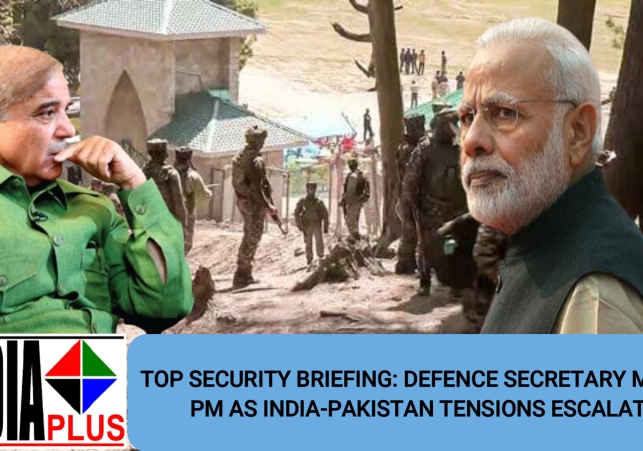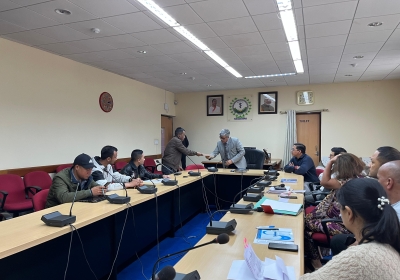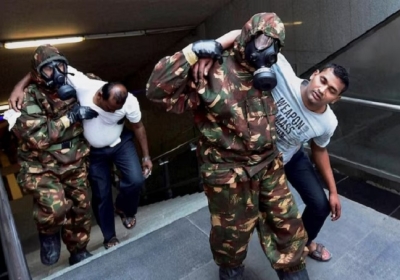TOP SECURITY BRIEFING: DEFENCE SECRETARY MEETS PM AS INDIA-PAKISTAN TENSIONS ESCALATE

Following the April 22 terror attack in Pahalgam, Defence Secretary Rajesh Kumar Singh reportedly met Prime Minister Narendra Modi to assess the security situation. This meeting came after Air Chief Marshal AP Singh and Navy Chief Admiral Dinesh K Tripathi had also briefed the Prime Minister on the armed forces' preparedness.
On the military front, the Indian Army accused Pakistani troops of initiating unprovoked small arms fire across multiple sectors along the Line of Control (LoC) and the international border in Jammu on Monday. The Army stated that Indian forces responded promptly and proportionately.
Diplomatic efforts are also underway to contain the fallout. According to a report by news agency AP, Iranian Foreign Minister Abbas Araghchi visited Pakistan on Monday in a bid to mediate and ease tensions between Islamabad and New Delhi. He was expected to meet Pakistani leaders including Foreign Minister Ishaq Dar, President Asif Ali Zardari, and Prime Minister Shehbaz Sharif. While Pakistan’s foreign ministry did not provide details, Information Minister Attaullah Tarar stated that Islamabad was communicating its position to allied nations.
The United Nations Security Council was also expected to hold closed consultations on Monday, reportedly at Pakistan’s request, to discuss the heightened tensions. Greece, which holds the Council's rotating presidency for May, welcomed the move as an opportunity for diplomatic de-escalation. Pakistan is set to take over the UNSC presidency in July.
Citing sources, it was reported that the Pakistani federal government and military briefed all political parties on the state of bilateral relations with India. Even the Pakistan Tehreek-i-Insaf party, led by jailed former Prime Minister Imran Khan, joined the session virtually. The parties were said to have pledged a strong response if provoked by India.
India’s Defence Minister Rajnath Singh also spoke publicly on the matter, asserting that as the defence minister, it was his duty to secure the nation’s borders and ensure a strong response to any acts of aggression.
In what appears to be a retaliatory move, the Indian government has begun implementing decisions to suspend the Indus Waters Treaty. According to sources, water flow to Pakistan from the Baglihar dam on the Chenab River has been cut off, and preparations are underway to reduce outflows from the Kishanganga project on the Jhelum River. Officials emphasized the government's stance of not allowing a “single drop” of Indus water to reach Pakistan.







